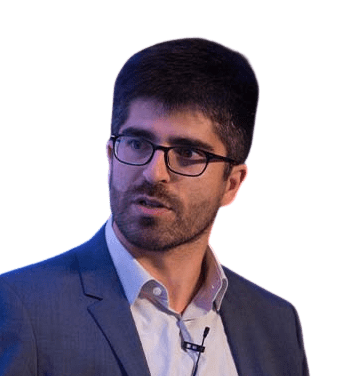Stay updated on our activities
Human-Centric Innovation and Quality in Public Services
This unique course is the result of a high-level collaboration between the OECD’s Observatory for Public Sector Innovation (OPSI), the OECD/SIGMA Programme, and EIPA.
This unique course is the result of a high-level collaboration between the OECD’s Observatory for Public Sector Innovation (OPSI), the OECD/SIGMA Programme, and EIPA. It brings together cutting-edge thinking on innovation, digital transformation, and quality management in public administration.
Participants will gain exclusive insights from OPSI’s global work on human-centric innovation, explore SIGMA’s deep policy experience in service delivery and digital governance, and work with EIPA on practical quality improvement tools such as the Common Assessment Framework (CAF). This is not just a training course – it’s an opportunity to connect strategic vision with operational change.
Over two and half days, the programme will guide participants through global innovation trends, frameworks for service design, and practical approaches to implementing user-centricity in public services. From interactive design sprints and systemic innovation labs to CAF-based action planning and case studies from Spain’s Gov to Gov Hub, the course balances theory with practice. Special attention will be given to measuring innovation and anchoring user-centric approaches beyond traditional satisfaction metrics.
Targeted at CAF users, innovation officers, public service managers, and senior officials from EU and neighbouring countries, this seminar offers a unique chance to rethink public service delivery and quality through a human-centric lens.
By the end of this course, you will be able to:
- understand how innovation and user-centricity contribute to trust, legitimacy, and performance in public services;
- reflect on global innovation trends and their relevance for your own institutions;
- explore how managing human centricity and innovation with proven approach of CAF 2020 can strengthen the service delivery;
- design improvement action plans that integrate experimentation, digitalisation, and stakeholder engagement;
- measure the impact of innovation initiatives and link them to quality improvements.
This course will be delivered through a mix of:
- Interactive presentations: framing innovation, quality, and user-centricity in the context of global trends and the CAF model;
- Practical workshops: including design sprints, specific innovation and resilience co-design approaches, and CAF-based collaborative exercises;
- Group discussions: allowing peer-to-peer learning, exchange of national practices, and reflection on innovation enablers and barriers;
- Case studies: featuring real examples from local and national administrations, including Spain’s Gov to Gov Innovation Hub and inclusive services initiatives;
- Networking moments: multiple opportunities for participants to connect and learn from each other;
- Quizzes and small group competitions: mixing an approach of testing the course dynamics and the acquired knowledge.
This course will help you rethink your organisation’s approach to service design, innovation, and continuous improvement, with a focus on human-centricity in delivering public services. It will introduce you to frameworks, recommendations, approaches, tools, and strategies that put people at the centre of change, while also reinforcing and managing institutional resilience. You will leave with practical insights, tested methods, and new ideas in how to drive innovation on a systemic and sustainable way. Whether you work in innovation, quality management, or broader public service reform, this course offers a unique opportunity to connect strategic innovation with hands-on tools for lasting improvement.
From innovation officers and quality coordinators to public managers and change agents, it welcomes all who are ready to embed human-centricity and innovation into the DNA of their organisations.
CAF users, innovation officers, quality coordinators, public service managers, policy advisors and senior officials from EU Member States, candidate countries, and neighbourhood administrations interested in combining quality, innovation, and user-centricity in their public service reform agendas.
Project number: 2520103
Course venue
Grupotel Gran Via 678
Gran Via de les Corts Catalanes, 678
08010 Barcelona, Spain
Project Management Officer
Ms Isabela Puscasu
Tel: +31 43 3296240
i.puscasu@eipa.eu
Fee
The fee includes documentation, refreshments, and lunches. Accommodation and travel costs are at the expense of the participants or their administration.
Discounts
EIPA member fee
EIPA offers a discount to all civil servants working for one of EIPA’s supporting countries, and civil servants working for an EU institution, body or agency.
Who are the supporting countries?
Civil servants coming from the following EIPA supporting countries are entitled to get the reduced fee: Austria, Belgium, Bulgaria, Cyprus, Denmark, Finland, France, Germany, Greece, Hungary, Ireland, Italy, Luxembourg, Malta, the Netherlands, Norway, Poland, Portugal, Romania, Spain, Sweden.
For all other participants, the regular fee applies.
Early bird discount
The early bird discount is not cumulative with other discounts or promo codes, except for the EIPA member fee.
Loyalty coupon
As a token of appreciation we offer all our participants a loyalty coupon for one of our future courses. The offer can be shared with colleagues and relevant networks. The coupon will expire one year after its release. This discount is not cumulative with other discounts, except for the EIPA member fee.
Meals
Dietary preferences can be indicated on the registration form.
Confirmation
Confirmation of registration will be forwarded to participants on receipt of the completed online registration form.
Payment
Prior payment is a condition for participation.
Cancellation policy
For administrative reasons you will be charged €150 for cancellations received within 15 days before the activity begins. There is no charge for qualified substitute participants.
EIPA reserves the right to cancel the activity up to 2 weeks before the starting date. In that case, registration fees received will be fully reimbursed. EIPA accepts no responsibility for any costs incurred (travel, accommodation, etc.).
A few days before the start of the course you will receive the log-in details for accessing the course materials. You can log in here.
I have a question
Our experts
Programme
| 08.45 | Registration of participants |
Charting the Course: Human Centricity and Innovation Starts Here | |
| 09.00 | Welcome and opening remarks Welcome by organisers and introduction of participants, workshop objectives, and structure. Tihana Puzić, Deputy Head of the European CAF Resource Centre at EIPA |
| 09.40 | Innovation starts with people: service delivery from the lens of the citizens and users This session frames the challenges of modern public governance and the need to put citizens and users at the centre of public service design and delivery, with the aim to align performance with innovation and citizen trust. These challenges have been captured in the OECD Recommendation on Human Centric Design, the OECD/SIGMA Principles of Public Administration and the Common Assessment Framework (CAF). Bruno Monteiro, Policy Analyst, OECD Observatory for Public Sector Innovation Nick Thijs, Senior Policy Adviser, OECD/SIGMA Programme Tihana Puzić, EIPA |
| 10.30 | Systemic shifts: transforming public services By using the Innovation Playbook, this workshop puts into practice the OECD Declaration on Public Sector Innovation, which offers a systemic approach to public sector innovation. Bruno Monteiro and Nick Thijs |
| 12.30 | Practical case: Gov to Gov Innovation Hub, inclusive services presentation Seville (TBC) |
| 13.15 | Lunch break |
| 14.30 | The feedback loop: quality and innovation through user experience The OECD Global Trends in Government Innovation highlights a high number of use cases, showing the practical aspect of designing/redesigning services based on users inputs, feedback, and engagement. This practical session details how public services can better engage and respond to users’ expectations and needs by embedding user-centricity, quality thinking, and innovation in all stages of service design and delivery. Bruno Monteiro and Nick Thijs |
| 16.00 | End of day 1 |
From Insights to Action: Embedding Innovation in Quality Circles | |
| 09.00 | Reflections on day 1 and objectives of day 2 Tihana Puzić, Bruno Monteiro, and Nick Thijs |
| 09.15 | Applying innovation under stress: public service readiness The workshop session is meant to adopt a holistic perspective to explore and assess the resilience of public services. Through this workshop format activity participants go through a design process (problem definition, disruption and stress-tests of the service), diagnose the impact, define tipping points and prioritise actions. Participants will have the opportunity to expose a selected public service to a series of exercises to get a sense of their readiness, resilience, and resistance to crisis. Bruno Monteiro and Nick Thijs |
| 11.15 | Coffee break |
| 11.45 | Assess to impress: making change happen from within This session highlights how innovation and human-centricity are incorporated in managing quality of the public sector in general and the CAF 2020 in particular. This session will explore how specific CAF subcriteria can guide innovation and human-centric improvements in public administration, using real challenges and collaborative idea generation. Tihana Puzić and Nick Thijs |
| 13.45 | Lunch break |
| 14.45 | From noise to harmony: tuning public services to user voice Participants present the CAF Action Plans focusing on user-centric and innovative approaches as elaborated in the previous session, followed by facilitator’s inputs Tihana Puzić and Nick Thijs |
| 15.45 | Zooming in: what is blocking (or boosting) human centricity and innovation in your organisation? This reflective session invites participants to explore their own institutional context –identifying the enablers, blockers, and untapped potential for embedding human-centric innovation and quality improvement. Through guided discussion, you will assess how ready your organisation truly is to turn ambition into action. Tihana Puzić, Bruno Monteiro, Nick Thijs |
| 16.30 | End of day 2 |
How to Measure the Innovation Boost | |
| 09.00 | Main takeaways from day 1 and day 2, objectives of day 3 Tihana Puzić, Bruno Monteiro, and Nick Thijs |
| 09.30 | How to measure a mindset: indicators for human-centric governance Practical insights into the best practices from OECD and SIGMA, with concrete examples on best measurement tools on measuring user-centricity beyond satisfaction surveys, and how CAF Action Plans will contribute to the anchoring of result-orientation. Nick Thijs, Bruno Monteiro and Tihana Puzić |
| 11.15 | Coffee break |
| 11.45 | Looking back, moving forward: reflections, feedback, and futures quiz In this dynamic closing session, participants will reflect on the key insights and takeaways from the course. Through an informal round table format, we will exchange feedback on what worked, what surprised, and what inspired action.To spark final reflections and anchor the learning outcomes, participants will also take part in a ‘Futures Quiz’ – a short, interactive knowledge and mindset check blending fun with substance. The quiz will feature five to seven questions covering core concepts explored throughout the seminar, including innovation practices, human-centric design, and quality management through CAF. Tihana Puzić, Nick Thijs and Bruno Monteiro |
| 13.00 | End of the course |


